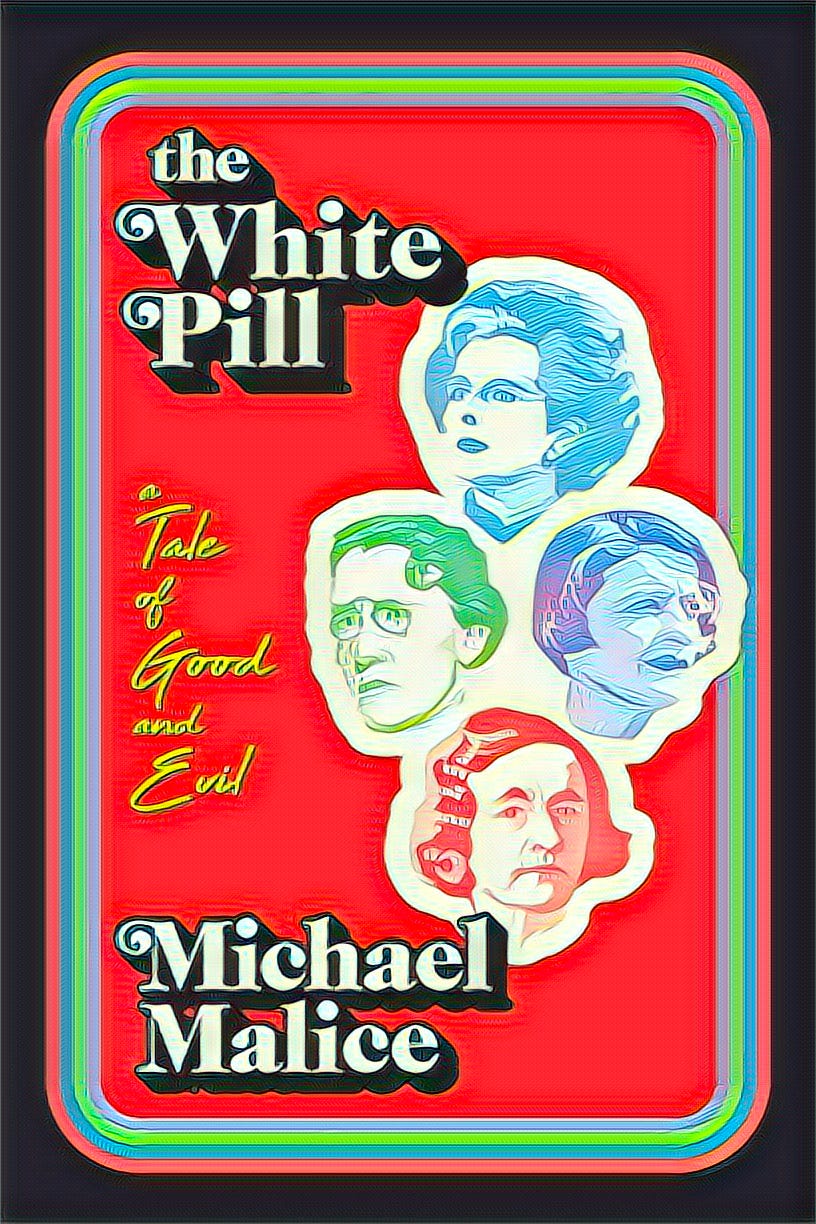Book review of “The White Pill” by Michael Malice
5 Stars
If you only ever read one book on the Soviet Union or communism in general in your life, this has to be the one. It’s packed with real history and the amusing and tragic anecdotes about life under communism. It reminded me of the stories of my late friend Yuri Maltsev.
Malice reminds us of the fact that those who 'lead' us astray are most often deeply mediocre people. The only thing separating them from the rest of us is their lustful appetite for power and their ability to persuade their supporters. They rely on breaking our spirit, on making us believe that our efforts are futile and that change is impossible.
The question is are they evil or are they stupid? While we shouldn’t downplay the stupidity of those who rule over us, I believe they are more sinister than they are stupid. If stupidity or ignorance was the problem this would be easily fixed by handing out copies of Thomas Sowell’s ‘Basic Economics’ at government buildings around the world. If the decision makers were just bumbling idiots, wouldn’t they occasionally make the right decisions? But why is every policy these people so passionately support anti human and pro giving the state more power?
“For our struggle is not against enemies of blood and flesh, but against the rulers, against the authorities, against the cosmic powers of this present darkness, against the spiritual forces of evil in the heavenly places.” – Ephesians 6:12
Despite the monumental roles that Reagan, Thatcher and Yeltsin played in the ending of communism, the main hero of the story is Mikhail Gorbachev. I didn't think much of him before, but he probably is the greatest reformer and peacemaker of the last century.
The writing was on the wall for communism in the late 80s, but he could have extended the pain and the bloodshed if he had wanted to. Instead he chose peace. When the communist leaders of East Germany, Hungary and Poland begged him to send in the tanks to keep the farce going, he said no.
Gorbachev had been the youngest leader of the Soviet Union since Stalin when he came to power in 1985 of what was then considered the eternal evil empire. On Christmas day 1991 he resigned as an old man from a bygone era. That evening, the hammer and sickle flag flying over the Kremlin was lowered for the last time as all the republics of the USSR including Russia itself had by then seceded from the Union.
In the very last bit of the book, after thoroughly covering the collapse of communism in Europe, Malice shares with us what the white pill is. Despite decades of tyranny, it did come to an end in the end. Even though there was of course no earthly justice for the millions who perished under decades of authoritarian communist rule.
One of my favourite anecdotes from the book is when Helmut Kohl, chancellor of West Germany at the time (1989) visited Poland's newly democratically elected leader Lech Walesa. “You know,” Walesa said, “the Wall will come down soon. I don’t know when, but I really think very soon, maybe weeks.” Kohl laughed in his face. “You’re young and don’t understand some things,” he told Walesa, who was forty-six. “There are long historical processes going on and this will take many years.” The wall effectively fell the next day as all restrictions on crossing it were lifted by the East Germans and Kohl was forced to rush back to his country.
The other hopeful anecdote is of Nicolae Ceaușescu, the secretary general of the Romanian communist party and supreme leader of the country, who had unleashed untold death and misery on ‘his’ people. In the space of less than a week he went from having absolute power to being unexpectedly booed by bused in ‘supporters’ while giving a speech at Palace Square to having his hands tied behind his back and being executed by firing squad in a school courtyard on Christmas morning 1989 alongside his equally pleasant wife. The events were broadcast later that day on Romanian television. You too can see it for yourself on youtube. We must celebrate when bad things happen to bad people. The difficulty though is judging who’s bad and deserving enough to suffer bad things. Maybe we shouldn’t judge. But in the the case of the Ceaușescus that wasn’t very hard.
A quote from the book itself:
“Did they all live happily ever after when the Soviet Union dissolved? Of course not. Utopias don’t exist—but progress does, and so do victories by good over evil. They happen all the time, both personally and politically.
The foes of liberty are many and they are powerful—but they are not particularly impressive. They will do everything within their ability to convince others that their might is eternal, that battle against them is pointless and doomed to fail. This is just another one of their many lies. It is said that they will never give up. Yet does wanting power over others mean that they will necessarily get it, and get it easily? Does the fact that they supposedly will never give up somehow imply that their opponents should—or does it imply the opposite? Evil people surrender all the time. At a certain point the costs—in every sense of the term—simply become too high. They are not all-knowing—far from it. They are often not even particularly bright. They are not all-powerful. They are men and women, far closer to snakes than they are to gods. They can, will, and have been defeated many, many times.
It is possible that those of us who fight for the dignity of mankind will lose our fight. It is not possible that we must lose our fight.
That is the white pill.”


